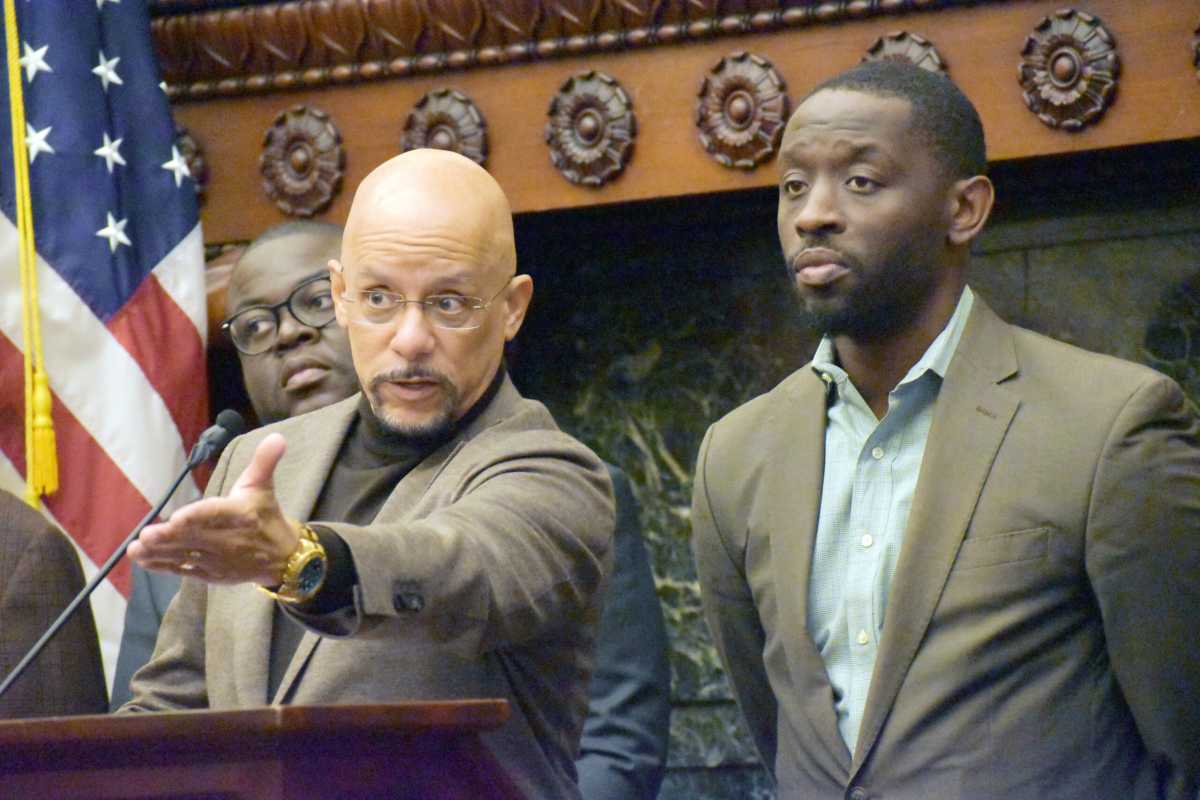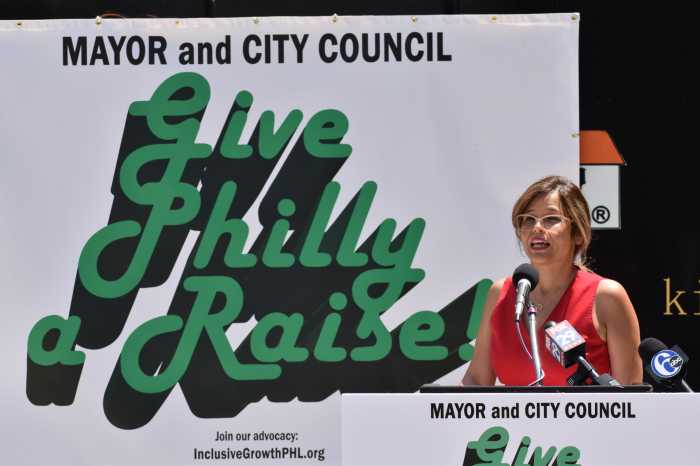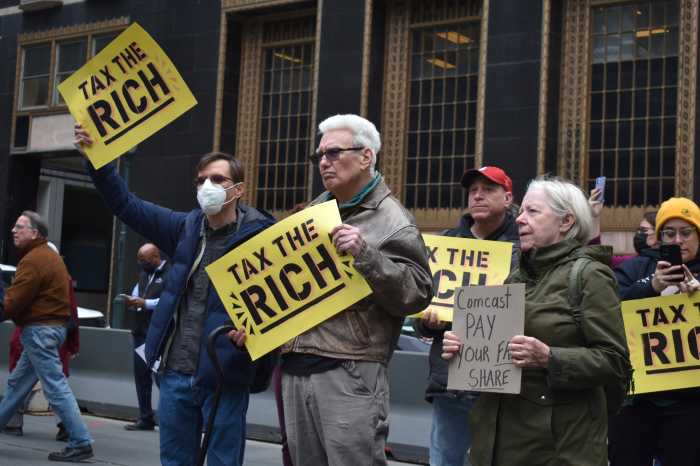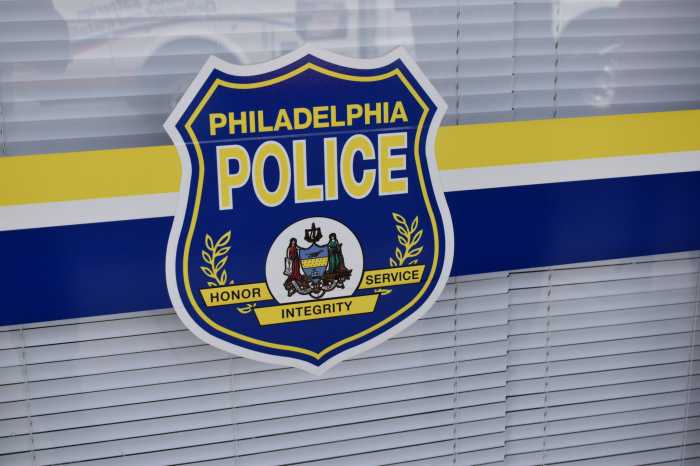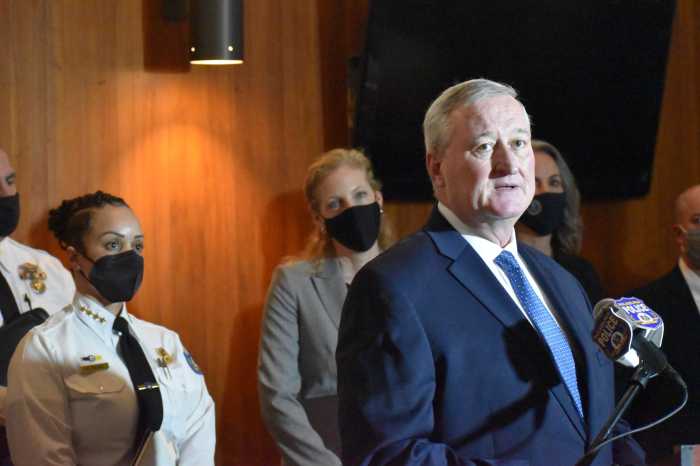State and local lawmakers, along with union leaders, are calling on the School District of Philadelphia to develop a plan to address environmental hazards – such as asbestos, lead and mold – in its buildings.
They also want Gov. Josh Shapiro to revise his budget proposal, released last week, to add hundreds of millions of dollars more for districts around Pennsylvania to rehabilitate their facilities.
Asbestos issues recently forced emergency building closures at Building 21, a school in West Oak Lane, and Mastery’s Simon Gratz High School.
“We’re not standing up here because we want to call the district out,” City Councilmember Isaiah Thomas said Monday morning during a news conference at City Hall. “We’re standing here because we feel like, at this point, we have no choice.”
Thomas said he has asked district administrators to put together a facilities plan that can then be used in Harrisburg to advocate for more funding.
Superintendent Tony Watlington Sr., who is in his first year, decided in November to pause the district’s facilities planning process, preferring to focus on his strategic plan. That report will inform how the district handles its buildings, he said in a letter to families at the time.
“If you finish the academic plan after the budget is over, and we don’t have a facilities plan to take to Harrisburg to negotiate, we will miss a window that we may never get again,” Thomas told reporters.
District representatives did not respond to a request for comment before Metro’s deadline.
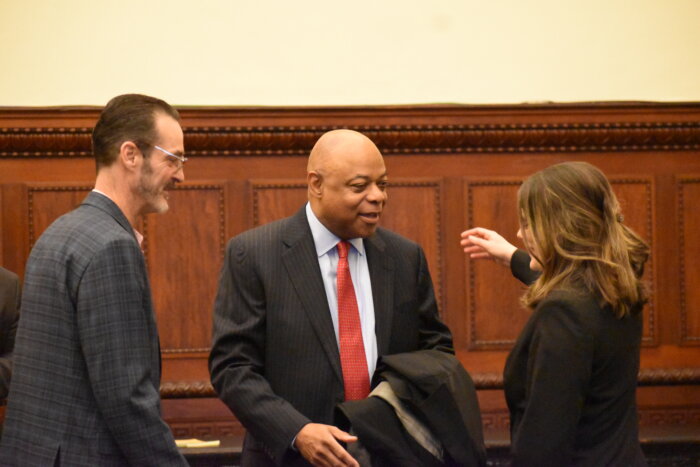
Shapiro, in his first spending plan, proposed dedicating $100 million to mitigating hazards in school buildings – an amount that falls far short of the mark, according to state Sen. Vincent Hughes and other local lawmakers.
Hughes has suggested tapping into a hefty state budget surplus and rainy-day fund to devote at least $1 billion to repairing educational facilities.
“We do not have a funding question in Harrisburg in terms of the availability of resources,” Hughes said. “The money is there.”
He pointed to a Commonwealth Court ruling last month that found that Pennsylvania’s school funding system violates the rights of students in poorer districts. Advocates hope the decision will lead to a dramatic increase in spending in under-funded schools.
“Governor Shapiro believes students in Pennsylvania should have world-class schools that are safe and healthy – and he is taking action to deliver real results,” the governor’s press secretary, Manuel Bonder, said Monday in a statement.
His budget proposal is “a crucial first step” toward safer schools and represents “the largest investment of state general fund dollars in environmental remediation for schools in PA History,” Bonder added. Shapiro’s plan also includes a $567 million increase in K-12 operational support.
At the city level, Mayor Jim Kenney’s proposed budget calls for a $12 million bump to public schools, bringing the yearly municipal contribution up to $282 million.
Later this month, Council will begin holding hearings to examine aspects of the budget, which must be finalized before the end of June.
“My position is the school district has to have a plan when they come to City Council, in order for me to sign off,” Councilmember Kenyatta Johnson said at the news conference. “At the end of the day, there has to be accountability and transparency on how that money is being spent.”



